My Top 3 Takeaways from the MicroStrategy World Conference
The crowd was buzzing all week with an electric energy that was a perfect blend of anticipation and curiosity.

The crowd was buzzing all week with an electric energy that was a perfect blend of anticipation and curiosity. This was the first time many MicroStrategy-trained employees, developers, analysts, engineers, and partners had seen each other in years. It was like a family reunion, except the entire family got a pre-event email alerting them about new features, functionality, ChatGPT, and an exclusive night at Universal Studios for just the family.
All the closet Harry Potter fans rejoiced at the idea of spending an evening in Diagon Alley.
As Bitcoiners, many of us see Michael Saylor on a podcast or see MSTR on CNBC for having the largest Bitcoin treasury in the world. But what amazed me was how good their Data Analytics & Business Intelligence is.
The MicroStrategy world conference was a 4-day event, with the first 2 days focused on MicroStrategy’s bread and butter data.
Executives from the largest and most innovative companies in the world, like Hilton and Sony shared the main stage to talk about how they’re leveraging MicroStrategy solutions to process, transform, and visualize information to empower their teams with critical insights to help them make faster, better decisions.
One example was from the insurer Amica, who, although smaller than many of the more prominent players, can provide better customer experiences by empowering every claims agent with real-time data and information about the user, including a risk score based upon telematics, to better help serve them when they call in.
Another fascinating presentation was the session on Artificial Intelligence. A less technical or experienced SQL developer could simply ask it questions like they were speaking to a human. The AI would generate clean, robust SQL queries that developers could leverage to build charts in half the time.
What made this conference even more interesting was the fact that there were these weird Bitcoiners and Bitcoin companies like Voltage, Swan, Cash App, Strike, and LQWD mingling with the data crowd, teaching them about Bitcoin and Lightning.
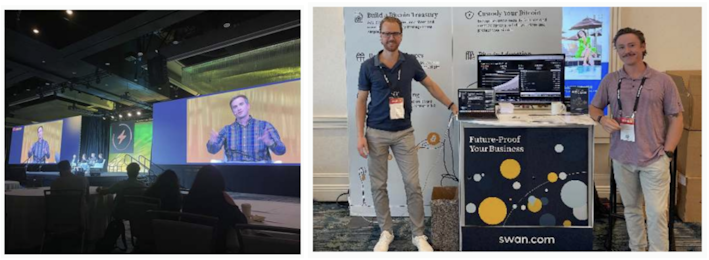
The blend was unique and certainly different than any other event that I’ve been to.
On Day 3, as the event shifted from a data event to a Bitcoin event, you could see the curiosity of the attendees shift as Fortune 500 Executives in suits were replaced by speakers like Michael Rihani from Cash App wearing jeans and Air Jordan Sneakers.
Here are my top three takeaways from the event that have implications for Bitcoin in the Corporate Space.
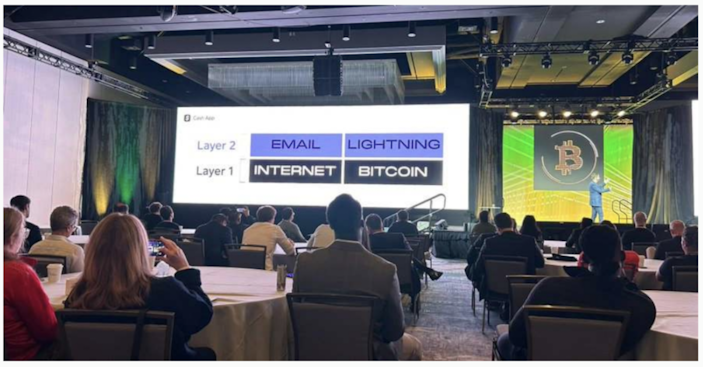
In 1982, the Internet had just 100 nodes. Today it has over 1B routers. As a network decentralizes, it becomes more ubiquitous and accessible to more people around the world.
The rate of decentralization and adoption in Bitcoin & Lightning is growing even faster than the Internet itself.
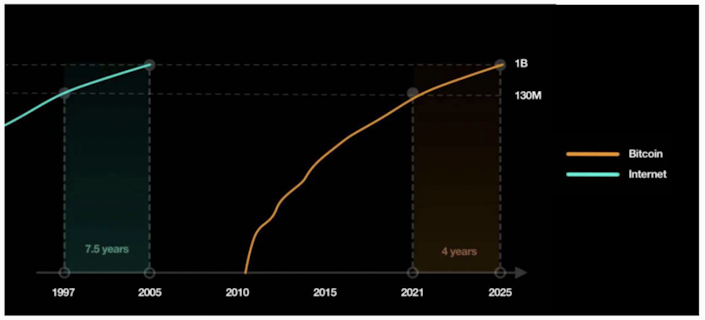
So if you follow this line of thinking, what are the implications of adopting this technology as a corporation? What happened to the companies that ignored, dismissed, or fell behind on the internet wave? Think Blackberry. Think Blockbuster.
The Internet protocol design is a modern marvel that has transformed our world. But the value capture happened by companies building business models and solutions on top of these internet native protocols.
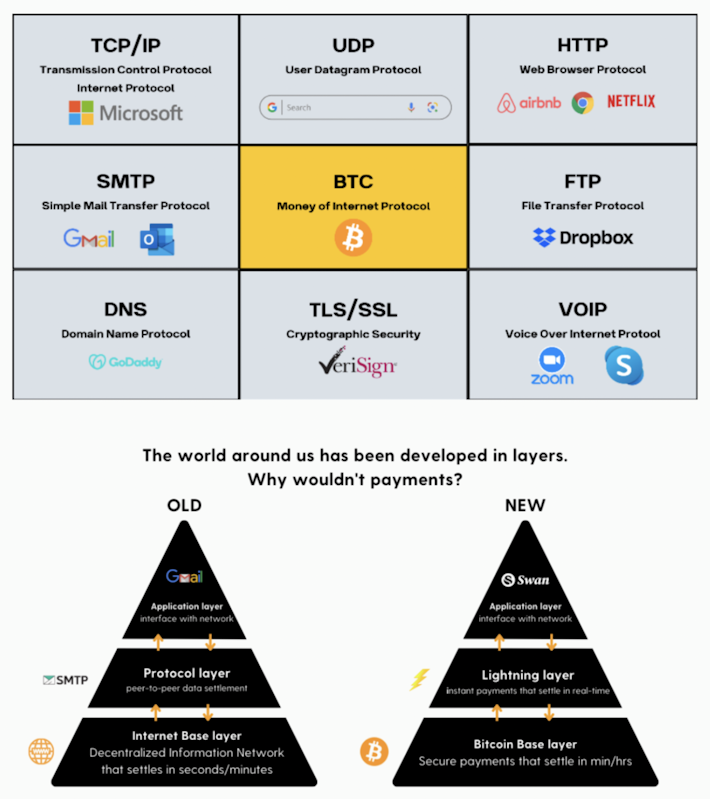
To understand the implications of these directional arrows of progress.
We need to open our imaginations a bit…
Airbnb: the largest real estate company in the world doesn’t own real estate.
Uber: the largest taxi company in the world doesn’t own any cars.
Instagram: the largest camera company in the world doesn’t make cameras.
Facebook: the largest content company in the world does not produce any content.
Netflix: the largest television company in the world does not lay any cables.
Bitcoin: could the largest financial network in the world not have any employees or bank branches?
Sign up to start saving Bitcoin
Buy automatically every day, week, or month, starting with as little as $10.
MicroStrategy’s point to their large enterprise customer base was this:
“The Bitcoin & Lightning networks are growing in a similar fashion to the Internet but faster. So you should consider owning it and leveraging it to improve your business models.”
Sending money to customers, employees, and vendors will be as easy as sending an email.
In fact, MicroStrategy provided a demo to all of their corporate customers of how they’ve turned every employee email in their directory into a lightning wallet.

How could you use this to transform your accounts' payables & receivables?
I believe that there’s a window in time for companies to adopt a model like Amazon, Costco, and Walmart.
Those companies negotiate 30-45 day payment terms with vendors but receive cash upfront or in real-time from customers, effectively giving them 30-45 days to reinvest this cash into their operations.
What if you used the Lightning network to receive payments from customers in real-time versus your traditional invoice system while your negotiated payment terms with vendors remained the same as they are now? What could you do with that cash over 30 days?
MicroStrategy unveiled its new product, Lightning Rewards. This new product will allow companies to incentivize and reward employees in real-time for behaviors that drive enterprise goals.
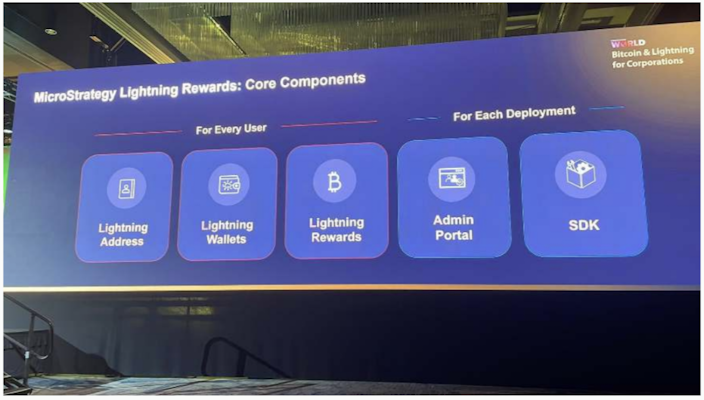
Incentives within companies are tricky. The majority of compensation and incentive plans fail because companies need to be able to properly incentive the actions they want to see as they happen.
What if you could drive down Insurance Premiums by rewarding employees for their participation in your wellness program?
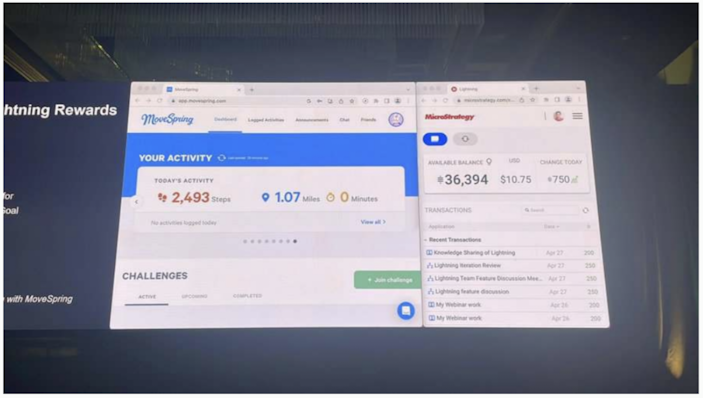
What if you could unlock all of the valuable knowledge trapped in key employees heads by incentivizing them to share that information on internal forums?
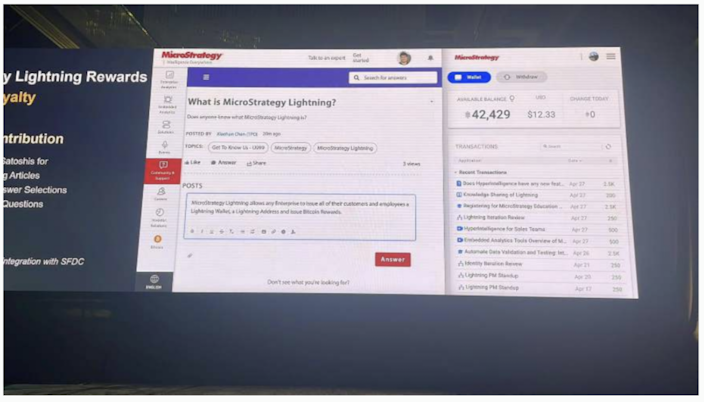
What if you could drive more engagement from your disengaged remote employees by rewarding them for showing up at team Zoom meetings on time and having their cameras on?
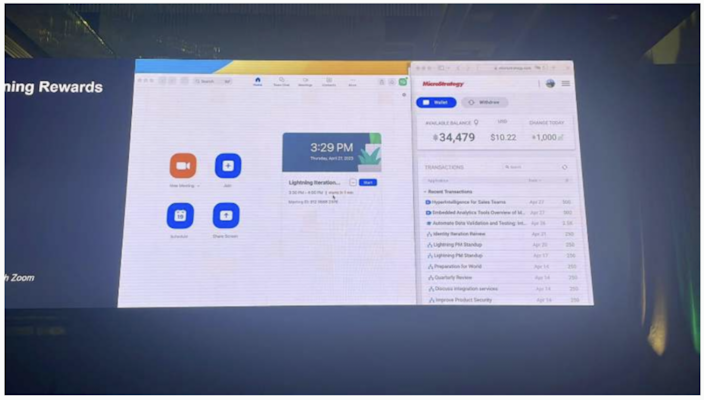
These things aren’t rocket science. However, before Lightning, there wasn’t a clean way to incentivize behaviors at the micropayments layer at the speed of light.
This is truly innovative and will change how companies engage with employees. There are some fundamental questions people had with this product concerning tax and accounting treatment.
Swan’s Bitcoin Benefit Plan removes any compliance, legal, tax, or accounting hurdles a company would have to think about because companies don’t have to own, touch, or handle BTC to use this product.
One thing is clear, employers are seeking ways to attract, retain, incentivize, and reward talented employees all around the world, and the existing benefits tools need to be equipped to help them do this.
During the conference, the stock chart of PacWest stock collapsing, just one morning after the federal government approved the fire sale of First Republic Bank to JP Morgan for 20 cents on the dollar.
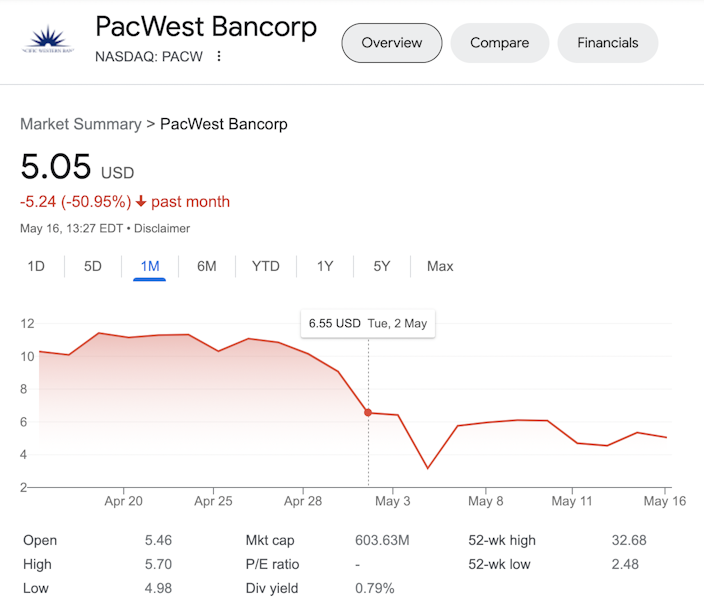
I spoke with several companies there who were actively looking for new banking partners who were unable to access funds because they held their funds in First Republic Bank.
Any Corporate Treasury dollars held outside of a Top 4 “Systemically Important”” bank above the $250,000 threshold is an unsecured liability that companies are finally looking to diversify.
In a segment titled Wall Street & Bitcoin, analyst Lyn Alden, Andrew Moss, VP, Global Crypto & Digital Assets Strategy at Bank of America, and Mark Palmer, Digital Assets Analyst from Berenberg Capital, discussed “‘Institutional Adoption of Bitcoin.’
As a surprise to me, Bitcoin is already being adopted by Institutions. The three questions being debated were:
How fast?
How much?
What form factor?
Many institutions are becoming more aware that “Bitcoin is not crypto.” In fact, this was shared on stage by executives from large institutions like Fidelity.
However, the lack of regulatory clarity and fund mandates is a limiting factor in Institutions holding pure BTC on their balance sheet. Many of them have to invest through proxies like MSTR, BITO, GBTC, or several other instruments outside of the United States, which limits the size and scale of their investments.
The appetite is there for companies to hold actual BTC with a Qualified Custodian. However, the existing regulatory environment, along with bureaucratic organizational structures, is preventing them from moving with speed, scale, or conviction into BTC.
Our job as Bitcoiners is to cross-pollinate and educate as many non-Bitcoiners as possible so that we win the race to avoid the war. In speaking with many executives one-on-one, most of them actually hold Bitcoin.
Helping them straddle the genuine tension of FOMO & Career-Risk requires long-term partners like Swan and Swan Private members to come alongside them in a helpful way to nudge them along.
Sign up to start saving Bitcoin
Buy automatically every day, week, or month, starting with as little as $10.
More from Swan Signal Blog
Thoughts on Bitcoin from the Swan team and friends.
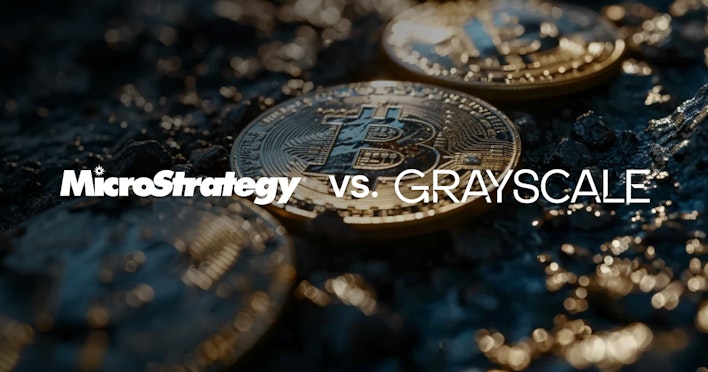
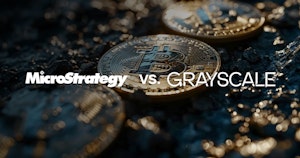
MSTR vs. GBTC Compared: Which is Best in 2024?

By Drew
This article compares MSTR and GBTC, offering insights for investors by examining their features, benefits, performance, fees, and drawbacks, focusing on their role in Bitcoin investment strategies.
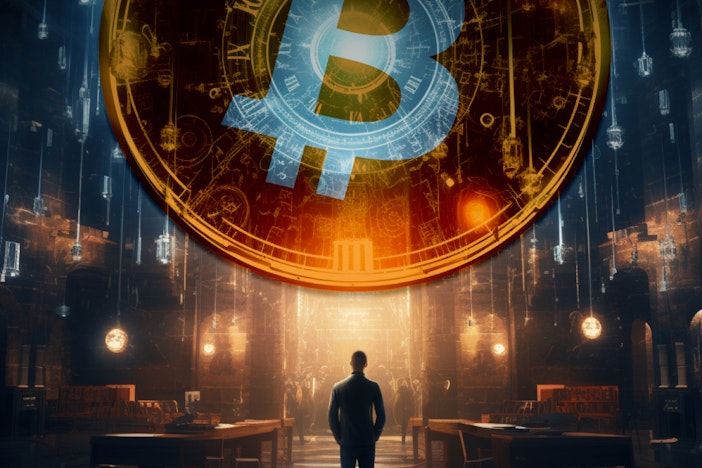

Changing Bitcoin: The Past, The Present, and The Future (Part One)

By Tomer Strolight
For Bitcoin to achieve the lofty goals many have for it, its rules will need to change. This three-part series of articles will tackle what it takes to change Bitcoin.
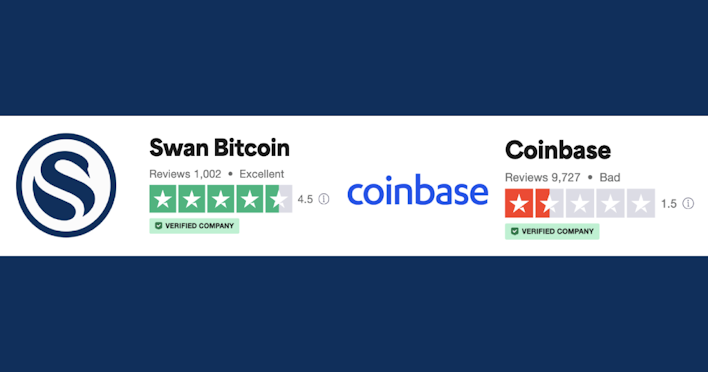
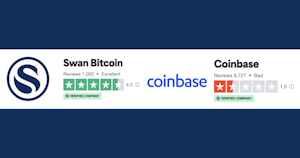
4 Reasons to Avoid Coinbase In 2024?

By Matt Ruby
The crypto platform is facing all kinds of problems. Is it time for customers to seek out an alternative?